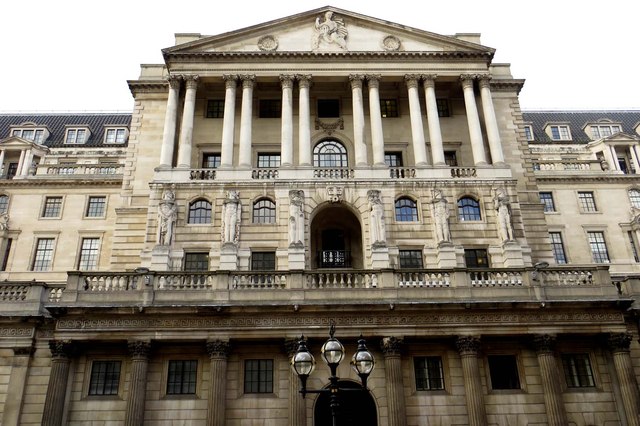Governments across the world are fudging it when it comes to the 'strings attached'....

To appease public opinion, governments are attaching conditions to coronavirus-related loan and grants to businesses. But all is not as it seems.
On the 19th May, the Bank of England (BoE) announced that:
“All businesses that wish to draw from its Covid Corporate Financing Facility (CCFF) for a term extending beyond 19 May 2021 will be expected to provide a letter addressed to HM Treasury that commits to showing restraint on the payment of dividends and other capital distributions and on senior pay during the period in which their commercial paper is outstanding”.
The BoE adds that these commitments are intended to “create incentives for… businesses to repay their borrowings from the CCFF” after the scheme closes.
Some neoliberals – e.g. in the Telegraph – are raging about restraints on dividends and say that “few groups are suffering as much as shareholders”. Such claims need to be debunked.
Options on the table
Restraint in paying out dividends will enable companies to preserve cash flows to meet their liabilities and boost chances of survival. However, it does not mean that shareholders will not receive a return. They can always generate ‘homemade dividends’.
This can be illustrated with a simple example. Suppose a company has £100 of assets and 100 shares. Therefore, the market value of each share is £1. If the company generates and retains £50 of earnings, its assets would grow to £150 and the price of each share would rise to £1.50. The shareholders can sell their shares; decide how much of the proceeds they want to consume and then invest the remainder into the same or another security of equal risk. This would involve transaction costs – but costs would also be incurred if the company chose to pay dividends.
PR stunt?
The BoE has not specified any mechanism for monitoring and enforcement of restraint on senior pay. What does ‘senior pay’ cover – salary, bonus, perks, pension rights, shares, share options?
The restraint on senior pay is not part of some drive to secure equitable distribution of income. In just three days the chief executives of major quoted companies collect more than the average employees’ annual wage – and the BoE has no plans to disrupt that. At Lloyds Bank, 36% of shareholders voted against executive pay, but the CEO still walked away with £6.3m pay packet. Clearly, shareholders can’t police fat-cattery.
There is some evidence to suggest that the voluntary pay restraint an impression management stunt. It can easily be bypassed. Executive pay and bonuses can be deferred. They can be paid in shares, share options, additional pension rights, golden hellos and goodbyes. The BoE proposal is a toothless sop in the face of public pressure.
Lax on tax
For good reasons, public opinion is hostile to granting government loans to tax haven based companies. France, Denmark, Poland and Belgium have announced that they will block businesses linked to offshore tax havens from receiving government-backed coronavirus bailouts. Scotland and Wales have also promised the same.
This sounds good on the face of it – but what do they mean by a “tax haven”. Tax havens are generally associated with secrecy, low/no tax rates, poor enforcement and cooperation with other countries. Who gets blacklisted depends on politics and power.
Opacity, secrecy and poor enforcement are the key requirements for tax avoidance and illicit financial flows, and provide the basis for a Financial Secrecy Index developed by Tax Justice Network. It lists countries who facilitate secrecy and increase possibilities of tax avoidance and illicit financial flows. Its top two offenders are Cayman Islands and the United States.
We all know that companies based in the US states of Delaware, New Jersey and Nevada and elsewhere are synonymous with secrecy. Other major offenders are Switzerland, Hong Kong, Singapore, Luxembourg, Japan, Netherlands, British Virgin Islands, United Arab Emirates, Guernsey and yes – the United Kingdom. In an ideal world, countries would deny bailout funds to secretive companies controlled from the above jurisdictions, but that is not on the table as most wield considerable diplomatic, military and economic power.
Botched blacklist
The second list is produced by the EU. Since 2017, it has published a blacklist of non-cooperative jurisdictions for tax purposes. The current list names twelve jurisdictions. These are American Samoa, the Cayman Islands, Fiji, Guam, Oman, Palau, Panama, Samoa, Seychelles, Trinidad and Tobago, the US Virgin Islands and Vanuatu. The countries on the EU blacklist are small, lacking diplomatic, military and economic clout.
The EU list does not mention any European tax havens even though countries such as Luxembourg, Monaco, the Netherlands, Ireland, Switzerland and many others have facilitated tax avoidance. The UK Crown Dependencies and Overseas Territories are key nodes in tax avoidance but do not feature on the EU list. The UK has also received slap on its wrists from the EU for giving illegal state-aid to companies through its taxation system, but is not on the EU blacklist.
So France, Denmark, Poland, Belgium, Scotland and Wales are showing moral indignation against small jurisdictions and doing nothing against the biggest players in tax avoidance.
The coronavirus pandemic should be used to reshape the relationship between business and society. But governments are doing little to change status-quo.
Prem Sikka is Professor of Accounting at University of Sheffield and Emeritus Professor of Accounting at University of Essex. He is a Contributing Editor to LFF and tweets here.
Left Foot Forward doesn't have the backing of big business or billionaires. We rely on the kind and generous support of ordinary people like you.
You can support hard-hitting journalism that holds the right to account, provides a forum for debate among progressives, and covers the stories the rest of the media ignore. Donate today.



